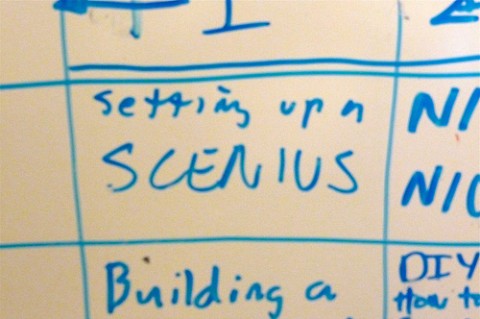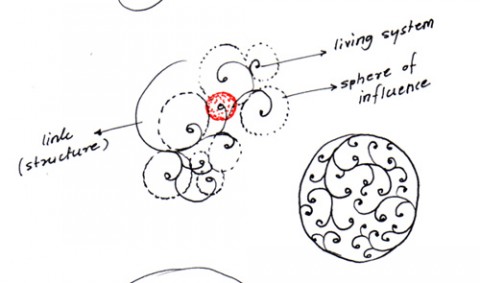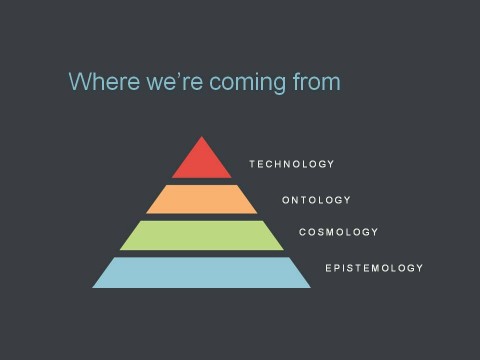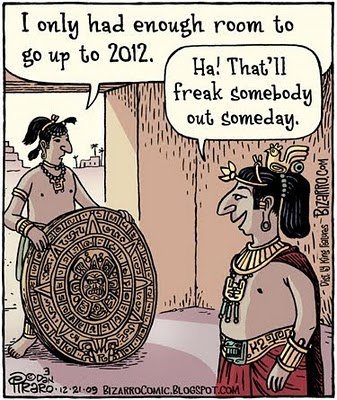Posted in Learning Edge
May 16, 2012

|Photo by Brad Coy|http://www.flickr.com/photos/bradfordcoy/3284527566|
This post is a slightly edited email message from Bart Westdijk of the New England Grassroots Environment Fund (NEGEF). NEGEF has 16 years experience resourcing the grassroots, thousands of citizen-led environmental and civic engagement initiatives around New England. Bart spearheads some of the amazing work the Fund is doing in the virtual and social media spheres to better connect grantees, add value in new ways, and create a larger sense of movement. Exciting new ventures include an emerging crowdfunding initative with ioby and a grassroots leadership skills building academy. Keeping in the spirit of NEGEF’s emphasis on collaboration, networks, and partnership for social change, Bart sheds some light on the concept of scenius . . . Read More
April 26, 2012

I’ve been enjoying David Rock’s Quiet Leadership: Six Steps to Transforming Performance at Work, a book that pulls from neuroscience literature in an attempt to help us understand ourselves better, and to create new pathways to creativity, productivity, and . . . social change! Rock leads with the idea that the highest point of leverage to help someone change behavior is at the level of their thinking – to help them think better for themselves. He goes on to illustrate how what we pay attention to and how largely determines the content and quality of our lives. This includes the way that we pay attention to problems. Read More
March 22, 2012

The post below is a repost of a piece by Kathia Laszlo on the “Rethinking Complexity” blog from Saybrook University. It captures a lot of what I am exploring these days about systems thinking as an intellectual exercise to greater embodiment of doing systemically. Enjoy!
A system is a set of interconnected elements which form a whole and show properties which are properties of the whole rather than of the individual elements. This definition is valid for a cell, an organism, a society, or a galaxy. Joanna Macy says that a system is less a thing than a pattern—a pattern of organization. Read More
March 1, 2012

Last weekend, while on school vacation with my family, my wife Emily and I went to hear Richard Louv speak at McKee Gardens in Vero Beach, Florida. If you don’t know him, Louv wrote the books The Last Child in the Woods and The Nature Principle and is a big advocate for getting kids and adults outdoors to overcome what we calls “nature deficit disorder.” I have heard him speak in the past, and very much appreciate his work. That said, I was a bit troubled by the public comment session and conversation after his talk. Read More
March 1, 2012

Last weekend, while on school vacation with my family, my wife Emily and I went to hear Richard Louv speak at McKee Gardens in Vero Beach, Florida. If you don’t know him, Louv wrote the books The Last Child in the Woods and The Nature Principle and is a big advocate for getting kids and adults outdoors to overcome what we calls “nature deficit disorder.” I have heard him speak in the past, and very much appreciate his work. That said, I was a bit troubled by the public comment session and conversation after his talk. Read More
February 1, 2012

This post comes courtesy of our friends at the National Bitter Melon Council (NBMC) – Jeremy Liu (also a board member here at IISC) and Hiroko Kikuchi. NBMC is devoted to the cultivation of a vibrant, diverse community through the promotion and distribution of Bitter Melon. Its projects, events, and festivals celebrate the health, social, culinary, and creative possibilities of this underappreciated vegetable and of embracing bitterness as a key to personal and community change.
Everyone experiences bitterness. We all deal with it; often in ways that are counter to addressing the bitterness, by denying, rejecting, or repressing the emotions, and/or our loss and our attachment to loss that create our bitterness. The need to actively address our bitterness is profound. Read More
January 18, 2012

|Image from Ritwik Dey|http://www.flickr.com/photos/ritwikdey/425995583/in/photostream|
At the end of last year, I posted a piece about our work with an early childhood system change initiative through the Graustein Memorial Fund in Connecticut. At the time we were exploring different formats and technologies for creating a new “system blueprint” for early childhood development in the state. Our post and related tweets asked for possible resources to conceptualize and create a living blueprint for this dynamic system, and I wanted to give an update about what we have heard so far and where we stand in our conversations.
As the Core Team has engaged in its research about all this, we’ve realized that there are three separate but possibly connected aspects to this “blueprint”conversation”: Read More
January 17, 2012

I am made greater by the sum of my connections, and so are my connections
– Stowe Boyd
Today, Curtis Odgen and I will be hosting an LLC Webinar on Collective Leadership. We are talking about a significant shift in how we organize our work for social transformation. Stowe Boyd, the net’s social anthropologist, recently posted what he calls the beginnings of an elevator pitch on “New Mutualism.” I found it resonant, relevant and tremendously exciting; here it goes:
Read More
January 12, 2012

Next Tuesday, my colleague Gibran Rivera and I are excited to lead a webinar hosted by our friends at the Leadership Learning Community called “If You Till It They Will Come: Nurturing Collective Leadership.” The above slide is a bit of a sneak peak, and certainly one of the headier, nonetheless important, elements we will cover. The idea behind this graphic comes from the work of Carol Sanford, who has highlighted the fact that our leadership and change methodologies are always grounded in an underlying belief system about what we hold to be true about the world and humanity. Not being aware of or transparent about this can get us into difficulty when we are mixing and matching techniques/methods that may contradict one another, or when we are not operating from the same system of beliefs as others. So here is how we are tracing the roots of our approach to cultivating collective leadership for social change: Read More
January 4, 2012

|Image by Dionne Hartnett|http://www.flickr.com/photos/dionnehartnett/6289336176|
I spent time over the break reading through Howard Bloom’s robust Global Brain: The Evolution of Mass Mind from the Big Bang to the 21st Century. Described as a “lusty tome” by evolutionary biologist Lynn Margulis, the book is an exploration of history through the lens of group rather than simply individual selection. Bloom’s concept of collective information processing is eye-opening, provocative, and possibility-inspiring. It is also very timely given the growing emphasis on networks and collective approaches to change. Here is a taste, found in the opening pages: Read More
January 3, 2012

One of the many things I like about celebrating New Year’s Day is that for a moment in time the awareness of millions of people is simultaneously focused on the same point of transition. We conspire to create an opening. We align ourselves with the cycle of the planets. We leap into a future that is necessarily new.
I’m not big on apocalypse or fear mongering. But I am often in awe of the stars. 2012 is going to be a big year for the stars. We’ll hear a lot of silliness, but creative are good alchemists. Let’s allow ourselves to toy with the idea of transition – of shift, of developmental leaps.
Read More
December 22, 2011
“It is my working assumption that the following forty questions must be definitively answered before we may realistically discuss our respective philosophies and grand strategies. . . . ”
—R. Buckminster Fuller

|Photo by Horia Varlan|http://www.flickr.com/photos/horiavarlan/4290549806|
Picking up from yesterday’s post, here is Bucky’s list of 40 strategic questions: Read More









